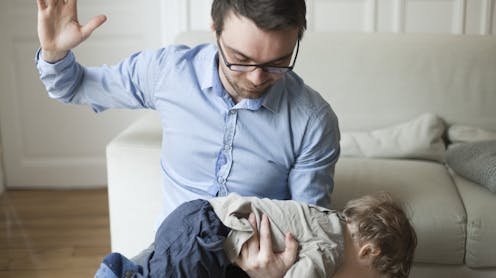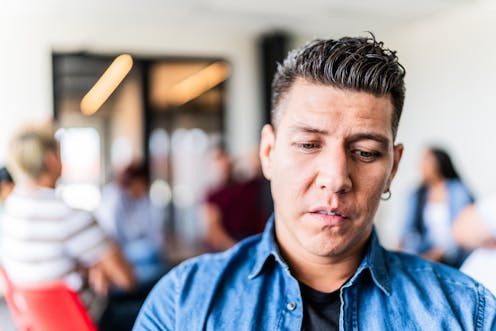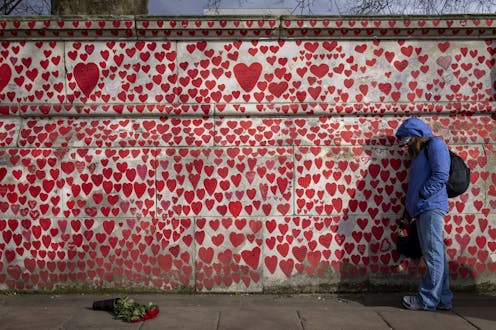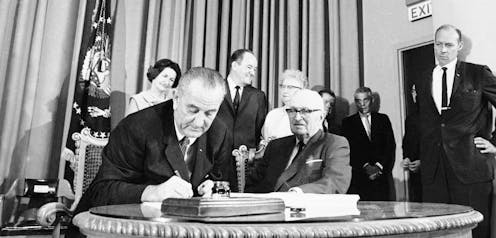Tasteless claims peddled by Covid-restriction enthusiasts that the virus's after-effects killed the Queen sparked outrage today.
Voices critical of No10's response to the pandemic jumped on Her Majesty's passing, insisting the beloved 96-year-old would 'definitely' have lived longer had she not got infected in February.
An NHS medic even backed the theory, which is rife on social media. Commentators argued she 'never fully recovered' following her brief illness.
Advocates of stricter coronavirus curbs have used the threat of long Covid as a way of pushing the Government to change course from its current hands-off approach.
Leading experts today said that anyone spewing the 'unethical' speculation should 'reflect on their own behaviour'.
The monarch's official cause of death won't be revealed anytime soon. Medics took three weeks to confirm her 'rock' Prince Philip died of old age when he passed away in April 2021.
The Queen was last pictured in the Drawing Room before receiving Liz Truss for an audience at Balmoral, Scotland on Tuesday
Charles has released a statement about the death of Queen Elizabeth, describing her as a 'cherished Sovereign and a much-loved Mother'
Medical world mourns Queen and praises her 'unwavering support' of NHS during remarkable 70-year reign
NHS chiefs and other health leaders today praised the Queen for her 'unwavering support' during her remarkable 70-year reign.
Amanda Pritchard, chief executive of the health service in England, led tributes to the monarch, saying the entire health service was 'incredibly saddened' by the 96-year-old's death last night.
Queen Elizabeth II, who ascended the throne four years after the NHS was created, was hailed for 'tirelessly' championing the system, particularly through Covid.
Her Majesty collectively awarded the health service the prestigious George Cross at a Windsor Castle ceremony in July, in recognition of the seven decades of 'courage, compassion and dedication' shown by staff.
Doctors and nurses across Britain also paid tribute to the Queen's 'long connection' to Britain's health community.
She was patron of the Royal College of Nursing, as well as charities including Cancer Research UK and the British Red Cross.
The Queen tested positive for the virus on February 20, in news which sparked alarm across the nation.
Buckingham Palace revealed the monarch, then triple-vaccinated, had suffered mild cold-like symptoms.
She carried on with light duties while self-isolating at Windsor Castle, but cancelled some virtual audiences.
Just weeks after winning the fight against the deadly virus, she told NHS staff in a virtual call that it had left her 'very tired and exhausted'.
Dr Kelly Fearnley, a hospital doctor based in Leeds who continues to call for masks to be worn in public spaces, said that after enjoying 'decades of good health' the Queen was 'never the same' following her bout of Covid.
Public pictures of the Queen — taken during her meeting with new Prime Minister Liz Truss on Tuesday — showed bruising on her hand.
Dr Fearnley, who has shared posts criticising the UK's lack of restrictions, claimed this was a 'tell-tale' sign of post-Covid vasculitis, inflammation of the blood vessels.
However, the Queen was pictured numerous times with bruised hands years before she contracted Covid.
When pictures first surfaced in 2019, medics explained that it is normal for the skin to become thin and fragile with age, leaving it more vulnerable to bruising.
In a comment that was shared dozens of times, Dr Fearnley added: 'No doubt her death was hastened by Covid.'
Dr Claire Taylor, a GP in Stirling who is already calling for Covid curbs this winter, said: 'She [the Queen] had Covid in April and said it made her tired and exhausted.
'She doesn't appear to have been back to normal since. This is what I see in my elderly patients, a decline. They are not counted.
'And of course, [her death] may be non-Covid related, but I've been worried about her since her Covid infection in April. She just didn't look like she recovered to me.'
Laura Miers, a long Covid sufferer in New York who has shared Zero Covid views on social media, claimed the Queen 'definitely' would have lived longer if she had not caught Covid.
She added: 'There's no way anyone can convince me Covid didn't hasten her demise.'
However, Professor Robert Dingwall, a sociologist at Nottingham Trent University who advised the Government on the pandemic when it kicked off, said it is 'cheap and tasteless to portray the Queen as a victim of long Covid'.
He told MailOnline: 'There are too many uncertainties about the condition and her cause of death to make any connection.
'Psychiatrists have long thought it unethical to comment on the mental health of politicians they have not clinically examined in order to make a political point.
'These statements about long Covid are equally unethical and their authors should reflect on their own behaviour.'
And Professor Paul Hunter, an epidemiologist at the University of East Anglia, hit out at the speculation, warning it is wrong to guess why the Queen died.
He told MailOnline: 'In my view it is unethical for a medical doctor to publicly speculate on the cause of an individual's death whether it is the queen or their next-door neighbour.
'Without full knowledge of the individual's medical history, you can rarely know the cause of death for certain.
'And if you did have full knowledge by being that patient's doctor or by accessing their medical records inappropriately, such speculation would be a highly unethical breach of medical confidentiality.'
Long Covid is recognised by the NHS as virus symptoms that last beyond three months, such as fatigue, shortness of breath and muscle aches.
Low levels of the stress hormone cortisol, damage to the vital vagus nerve and micro blood clots have all been suggested as potential mechanisms behind the condition.
However, some experts have cast doubt over the prevalence of long Covid — which latest surveillance data suggests is affecting 2million Britons or one in 32 people — because tiredness and aches are linked to a variety of conditions.
Some experts who have been critical of No10's approach to the pandemic have used long Covid to call for extra curbs.
Source: dailymail.co.uk

















 English (United States) ·
English (United States) ·